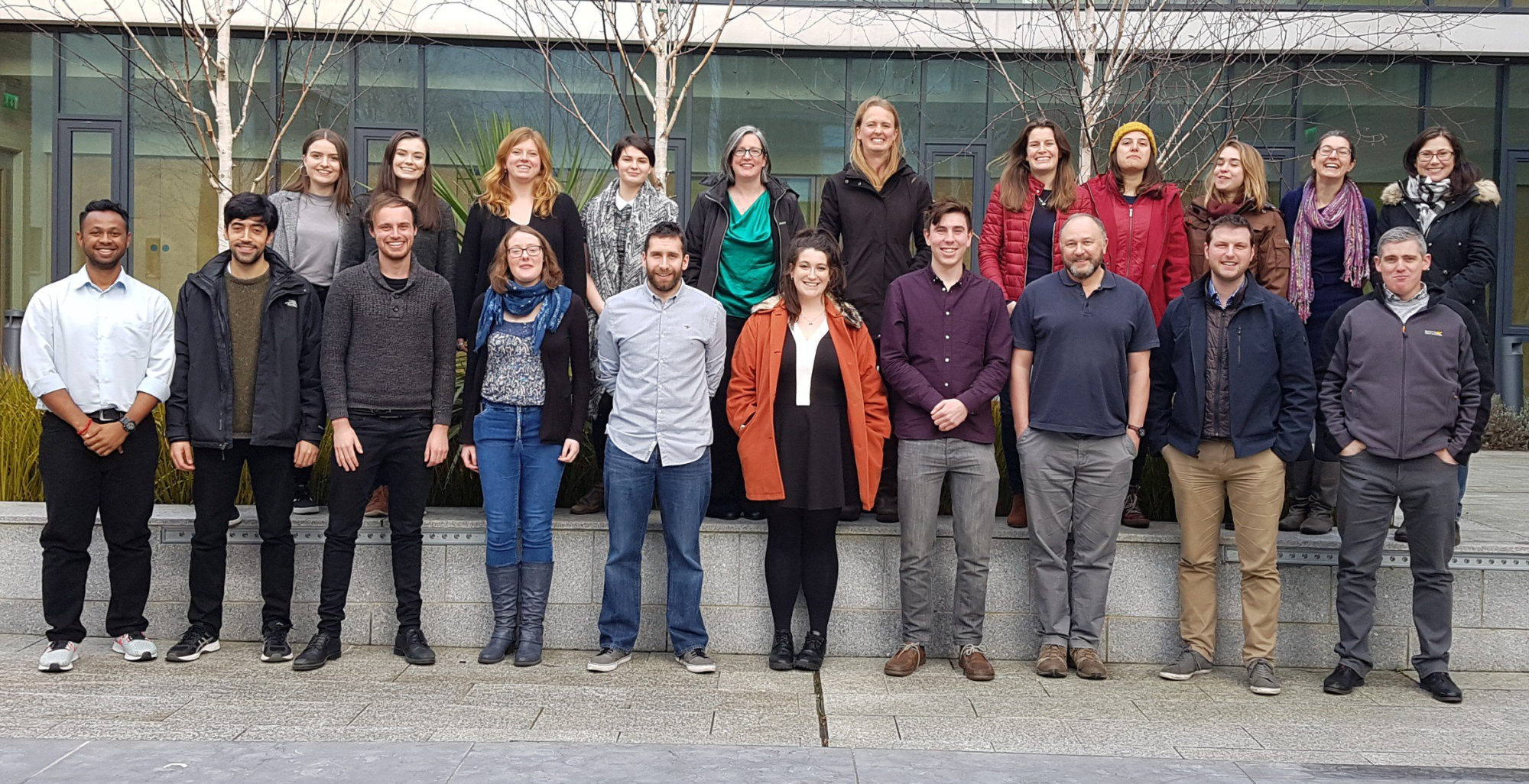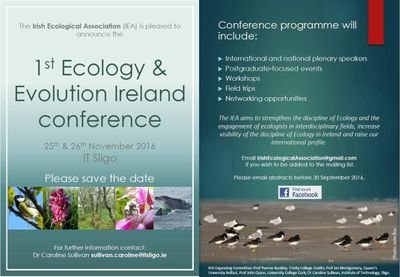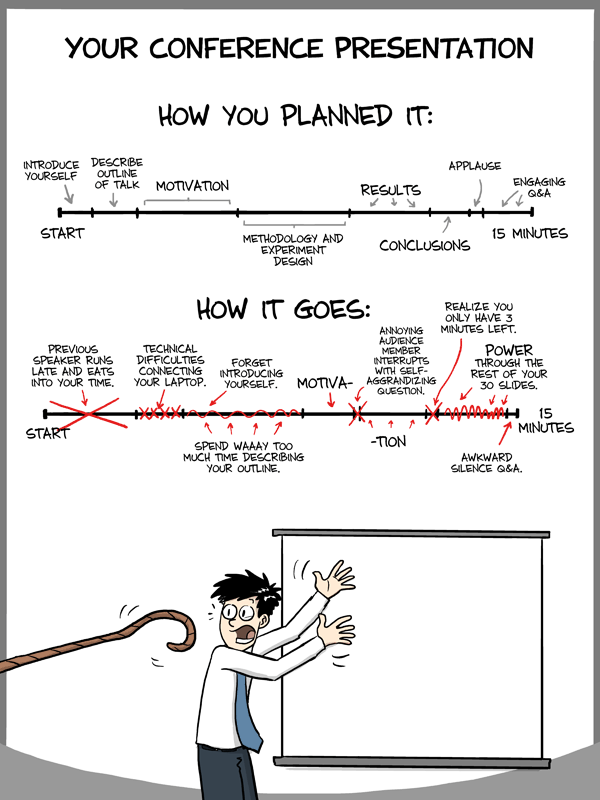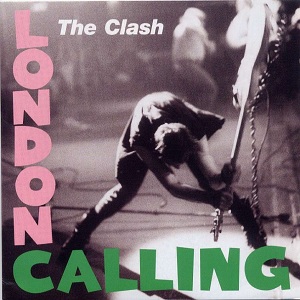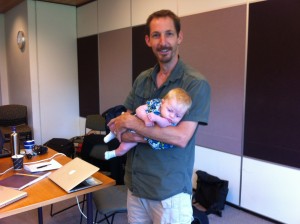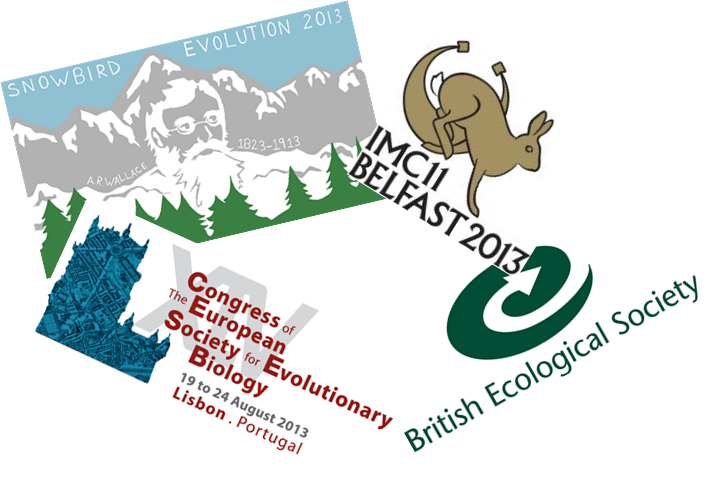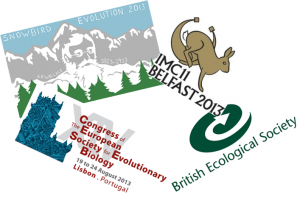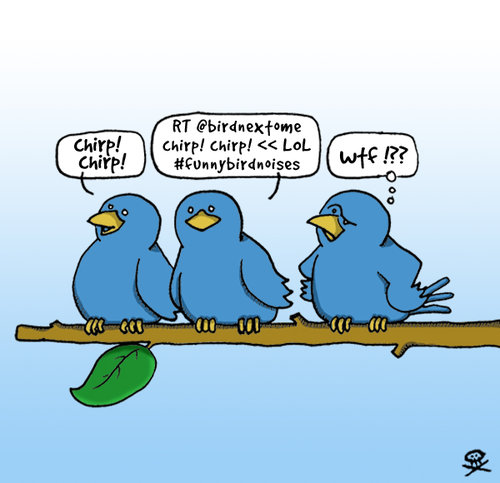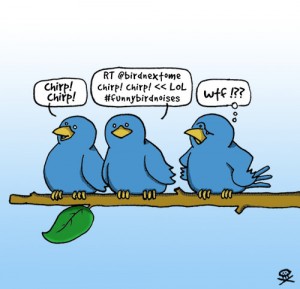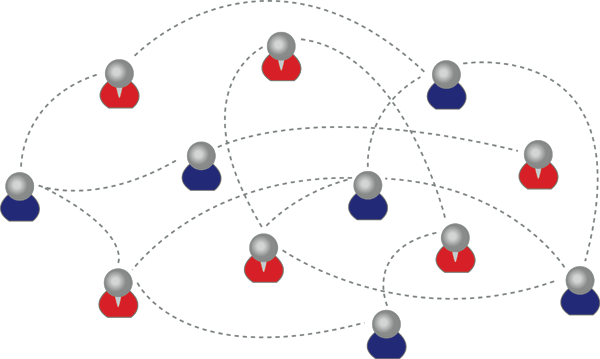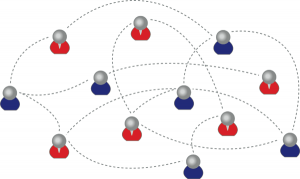Following on from the successful meeting last year, we held our Second Annual Irish Pollinator Research Network Meeting on 18th January 2019. This year, 22 researchers from TCD, UCD, DCU, MU, TUD and QUB gathered at DCU’s Water Institute for 16 oral presentations and discussions about pollinator, pollination and pollen research currently underway in Ireland. Continue reading “Irish Pollinator Research Network goes from strength to strength…”
Ecology & Science in Ireland: the inaugural meeting of the Irish Ecological Association
In the years to come, 140 ecologists working in Ireland will look back with fond memories of being part of the inaugural meeting of the Irish Ecological Association (24th-26th November). We will remember hard-hitting plenaries, compelling oral presentations, data-rich posters, influential workshops and the formation of the IEA’s first committee. The lively social events might be harder for some of us to remember… Continue reading “Ecology & Science in Ireland: the inaugural meeting of the Irish Ecological Association”
School of Natural Sciences Postgraduate Symposium 2016: Part 1/3
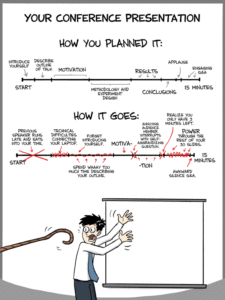
School of Natural Sciences Postgraduate Symposium 2016: Part 1/3
#zoobotpgsymp, not an infection transmitted by botflies, but the hashtag of the annual Botany-Zoology postgraduate symposium, hosted by the School of Natural Sciences, which took place on the 14th of April.
This year’s symposium hosted 15 student speakers over 2 sessions of talks as well as two pleniaries delivered by our guest speakers: Dr Nina Alphey (University of Oxford, Imperial College London) and Dr Rob Thomas (University of Cardiff).
For those of you who are interested in exactly what we work on here at EcoEvo@TCD, here are the abstracts from the PhD student presentations. Check out the TCD website for more details!
Darren O’Connell (@oconned5)
Supervisors: Nicola Marples & David Kelly
Title: Ecological character displacement as a driver of diversification
Since Darwin, competition has been recognised as an important factor driving diversification. Competition is energetically expensive and unstable, so direct competition is rarely observed. One way in which species can avoid competition is ecological character displacement. This is where differences between similar species are accentuated when they co-occur but are lost or minimised when they do not overlap.
We suspect this process may have occurred in our study system of south-east Sulawesi, Indonesia. Two closely related and similarly sized species of kingfisher occur in this region, one resident and one migratory. On the Sulawesi mainland and larger (continental) islands they spatially segregate by habitat and resource partitioning. On the smaller islands of the Wakatobi Archipelago there is less habitat diversity and we do not see evidence of either habitat or resource partitioning. We do see a shift in morphology of one of the competing species, the resident Collared Kingfisher (Todiramphus chloris). The Wakatobi population is larger (wing and bill) than mainland populations. The change in habitat structure on the Wakatobi Archipelago bringing these species into closer contact may have promoted this divergence in morphology to alleviate potential competition.
Preliminary genetic work shows divergence between Collared Kingfisher populations of the Wakatobi and Sulawesi mainland, indicating the taxonomy of these populations requires further assessment.
Sukontip Sirimongkol
Supervisor: John Parnell
Title: Morphological characters of Henckelia Spreng (Gesneriaceae)
The genus Henckelia is one of the most complicated genera in the family Gesneriaceae. Recent molecular phylogenetic studies on Chirita and Henckelia are presented. These have separated Chirita from other genera such as Henckelia, Damrongia, Microchirita, Liebigia and Primulina. Some members Henckelia have been moved to other genera including Codonoboea, Didissandra, Didymocarpus, Lindernia and Loxocarpus resulting in a reduction in the number of Henckelia species to 57. Defining morphological characters for Henckelia allowing separation from these other genera are as yet unclear but will be derived from materials collected on fieldwork. In addition, for these morphological studies, specimens lent from Aarhus University Herbarium (AAU), University of Aberdeen (ABD), The Natural History Museum (BM), The Forest Herbarium (BKF), Bangkok Herbarium (BK), Royal Botanic Garden Edinburgh (E), Royal Botanic Gardens (K), Kunming Institute of Botany (KUN), The National Herbarium Nederland (L), Singapore Botanic Gardens (SING) will be used. The final thesis will therefore be in part molecular but with palynological, ecological, morphological and biogeographic data. This will allow for a revision of Henckelia in Thailand and Indo-China including Myanmar and Southern China.
Dermott McMorrough (@derm_mcm)
Supervisor: Andrew Jackson
Title: Now you see me: Examining the variation in time perception
Sight is one of our most valuable senses: constantly feeding us information about our environment, allowing us to evaluate potential mates, and perhaps most importantly: enabling us to find food. In the animal kingdom, a number of strategies are deployed as individuals and groups go about finding the food necessary for moving, growing, and ultimately passing on ones genes.
The way in which animals and humans acquire, process, and act upon visual information is a highly evolved, intricate process played out over minuscule time scales. In the time it takes for a predator to realise that its prey is about to change direction, or for an expert batsman to notice the spin on an approaching baseball, it is often too late to act. Our knowledge of temporal variation in this key trait lag in comparison with our understanding of spatial acuity.
Using a combination of simulation and psychometric techniques, I aim to tease apart the relationship between information acquisition over discreet temporal scales and the evolutionary consequences for both animal and human systems.
Anindita Lahiri
Supervisor: Trevor Hodkinson, Gerry Douglas, Brian Murphy & Colin Kelleher
Title: Characterizing candidate disease resistance loci in ash (Fraxinus) and an assessment of ash fungal endophyte strain variation in Ireland
Ash is very useful and abundant tree found throughout Europe, which is now threatened considerably because of a disease called ash dieback. It is caused by a fungal pathogen known as Hymenoscyphus fraxineus Baral. It can damage plants irrespective of their age group but young plants are more susceptible to the disease. Ash dieback starts from the midrib of the leaves and travels through the midrib to the stem part of the plant where the fungal mycelia blocks the xylem and phloem vessels and the plant dies because of lack of water and nutrients. This project is currently undertaking a comprehensive study of the leaf fungal endophytes of healthy plants to characterize their microbiome. We have cultured endophytes in a malt extract agar media and isolated them on the same media by sub-culturing. We are currently amplifying nuclear ribosomal bar coding DNA regions and sequencing them to identify the fungal isolates. We will then test the biocontrol potential of some of these against the disease pathogen.
Maureen Williams (@MoDubs11)
Supervisor: Ian Donohue & Celia Holland
Title: Does parasitism interact with warming to modify energy flow in ecosystems?
Gammerid amphipods are key components of aquatic ecosystems around the globe, acting as important detritivores and frequently dominating benthic assemblages in both rivers and lakes. Their ability to process detritus and return nutrients to the ecosystem may, however, be undermined by infection with behaviour-modifying acanthocephalan parasites. Moreover, as gammerids are ectothermic, the impact of parasitic infection could also vary with temperature. We explore whether parasitism and warming interact to modify energy flow in ecosystems by comparing individual energy budgets for Gammarus duebeni that were infected with the common acanthocephalan parasite Polymorphus minutus, with those of uninfected individuals of similar size across a broad range of temperatures.
One body one problem
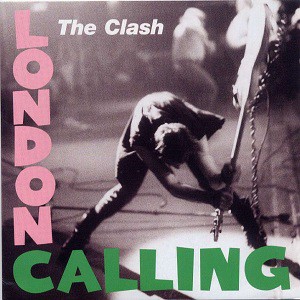 You may have heard on the academic grapevine that I will soon be leaving Trinity College Dublin. As with all moves I’m both sad to be leaving, but excited to take on new challenges. I’ll be around until the summer, but now this is common knowledge I wanted to explain why I’m moving on. And also to make something else really clear – I’m not leaving because I dislike working here! The School of Natural Sciences (and particularly Zoology where I’m based) has been a fantastic place to work for the last three years. The staff are friendly and supportive, the students are top notch, and the working environment here is energetic and collegiate. I’ve met some amazing people and I hope to continue working with them. I’ve also learned more than I thought possible in just three years.
You may have heard on the academic grapevine that I will soon be leaving Trinity College Dublin. As with all moves I’m both sad to be leaving, but excited to take on new challenges. I’ll be around until the summer, but now this is common knowledge I wanted to explain why I’m moving on. And also to make something else really clear – I’m not leaving because I dislike working here! The School of Natural Sciences (and particularly Zoology where I’m based) has been a fantastic place to work for the last three years. The staff are friendly and supportive, the students are top notch, and the working environment here is energetic and collegiate. I’ve met some amazing people and I hope to continue working with them. I’ve also learned more than I thought possible in just three years.
Then why am I leaving? Mostly it boils down to the “one body problem“. We’re all familiar with the “two body problem”, whereby people in a relationship are forced to find ways to make their relationship and careers work at the same time. Sometimes this involves partners trying to get jobs in the same place, although it could be detrimental to their careers; other times people live apart so they can have more choices over which job to take. Either way it’s a crappy problem and I feel terrible for people in that situation. We talk less about the “one body problem” which also disproportionately affects women and minority academics, particular LGBT academics. I also believe it may be an important reason why these groups leave academia so I think it deserves more attention when we’re thinking about equality.
The “one body problem” refers to the difficulties single academics face when moving around for jobs. In its own way this can be just as bad as the “two body problem” (it’s often quite frustrating when people tell me how lucky I am to be single and free to move about). Arriving in a new place as a single person is daunting and, without the support network of a partner or friends, it is also extremely isolating. Making friends in a new place takes time, and the heavy workloads of academic jobs leave little time for friend making attempts. Added to this, academics are very transient so it’s not unusual to make a new friend, and for that friend to leave just a few months later (in Dublin even the non-academic community is fairly transient). This is particularly hard for international postdocs who don’t have family or friends living nearby to escape to at the weekends. The other issue with the “one body problem” is that eventually most single people would like to meet someone, even if they’re currently happy living an independent life. In some places this is next to impossible, for example, tiny college campuses in the middle of nowhere, and gets harder as people get older. Again this disproportionately affects women and minorities.
I’ve found this problem has become worse for me in recent years. I think this is partly because of my change in job status. As a PhD student and a postdoc I had far more free time to try and make friends when I moved. There were also lots of social events organised for students/postdocs where you could meet each other, and also form a bit of a community. This sort of thing is less common once you’re a professor. Also I’m now the one staying put as the postdocs and PhD students I’ve befriended move on to other places. It also reflects the fact that most people my age are married with kids, particularly the younger faculty here. We get on really well at work, but at 4pm everyone goes home. Eventually I realised that this situation was causing me a considerable amount of stress and unhappiness which was only going to increase as the friends I’ve made in the last three years prepare to finish their postdocs or PhDs and move on. So I’m leaving Dublin because I don’t have a stable support network here and in the long term that is not a good thing for me (or anyone).
If you have new single people joining your department I hope you’ll try and help them to settle in and don’t just assume that being single is the easy option for academics! Note that I’m not saying the “two body problem” is easier! Let’s just recognise that the academic lifestyle is hard for everyone and try to consider how to make things more equal for all women and minority groups, not just those with two body issues, and/or children.
Author: Natalie Cooper, @nhcooper123, ncooper[at]tcd.ie
Photo credit: “TheClashLondonCallingalbumcover” by Source. Licensed under Fair use via Wikipedia – http://en.wikipedia.org/wiki/File:TheClashLondonCallingalbumcover.jpg#mediaviewer/File:TheClashLondonCallingalbumcover.jpg
Learning the art of conferencing
The start of the new academic year marks the end of my second conference season. I attended two conferences; Evolution 2014 in Raleigh, North Carolina and the British Ecological Society Macroecology meeting at the University of Nottingham. They were at the opposite ends of the spectrum in terms of size and specificity but they were both interesting, useful and, most surprisingly for me, enjoyable.
The difference is that I knew what to expect. Last summer was my first taste of conferences along with the intellectual and social stamina required to last through a day of talks, coffee breaks, poster sessions and post-conference socialising. I was very lucky that I went to each event as part of a group, so there was always a familiar face to find in a crowd and it made networking easier but I still found the whole experience challenging.
This time around was different; the familiarity made everything easier. For a start, I finally figured out how to plan a sensible schedule which didn’t involve running from one room to another between talks. Most importantly, I’m learning how to “play the game”. I’m slowly figuring out how to give an elevator pitch about my research without making the recipient’s eyes glaze-over and how to talk to other people about their research without sounding like a complete idiot. I’m still a long way off from being a proper conference pro but I’m getting there.
Giving a talk instead of a poster made a huge difference. Last year I brought the same poster to two different conferences. Through the course of each poster session, I spoke to a handful of people, some of whom seemed at least partly interested in my research but mostly they were being nice to the student with no one else at her poster. The experience definitely made me into a more pro-active browser at other poster sessions. People usually appreciate some interaction and it’s always more interesting to talk to someone about their research, even if it’s completely outside my area, instead of just admiring their poster design skills.
This year I gave a short talk at both the conferences I attended. It was nerve-wracking but definitely much more beneficial for my research and also my conference experience. I was lucky to have some useful preparation: we’ve often covered presentation skills in NERD club and I benefited from great constructive criticism during practice talks, especially from Thomas and Natalie who could probably have delivered my talk word for word by the time of the conference! It was worth the effort. My presentation was not ground-breaking in terms of the science content or delivery but I was pleased with how my talks went at both conferences. It was also very beneficial to get the feedback, comments and suggestions from the people in the audience who spoke to me afterwards. You get a lot more feedback after telling an audience your research “story” for 10 minutes rather than hoping to attract passers-by to a poster. Furthermore, at a small conference like the macroecology BES group, giving a talk helped to identify me as the “tenrec girl” so I could speed past the normal elevator pitch opening which marks most initial conference conversations.
Some people take to conferences easily; others have to work a bit more. If you’re part of the latter group then I can assure you that everything becomes easier and more enjoyable with a bit of familiarity, practice and experience. I still have a lot to learn but I’m getting there. I’ve realised that many people, particularly the more junior researchers, also find it tricky to master the art of conferencing. So if you’re feeling awkward standing around the coffee counter or sitting in a seminar on your own, chances are that the person next to you is in the same boat and you will both be happier if someone takes the first plunge into conversation. You will add another name to your list of friendly faces in the crowd or maybe meet a new collaborator. In any case, you’ve got nothing to lose so give it a go!
Author: Sive Finlay, sfinlay[at]tcd.ie, @SiveFinlay
How to get the benefits of mobility – even when your movement is constrained
There are a long list of reasons why mobility in an academic career is considered highly desirable, both by individuals and the institutions which fund them. Scientists move around to take up jobs in a tight and international job market, communicate their work to the wider scientific community, work with new people, learn new techniques, strengthen networks or because they like adventure. However, there are many excellent scientists who are constrained in various ways to be less mobile than they would like or than would be good for their careers .
I have always loved to travel, and after almost 15 years of moving around for jobs, fieldwork, conferences and adventure, my own constraints arrived in the guise of two adorable children. My kids have taught me a lot about the benefits of a more sedentary life but I still have itchy feet and the desire to interact with colleagues internationally. This period in my life led me for the first time to really think about what it is about mobility that is of benefit and how to achieve that while staying at home.
Constraints are costly. Some constraints can be overcome by providing resources or altering institutional structures. Other constraints are personal or philosophical and might best be considered as hard constraints (unchangeable). Common constraints include personal family situation such as partner’s career and caring responsibilities for children, parents or friends and personal mental and physical health. The costs of mobility include financial costs, disruption, adaptation to a new scientific and/or social culture, language barriers and leaving a productive group. For all of these reasons scientists may be temporarily or permanently constrained from being able to physically move locations for work reasons.
It makes sense to me to have a range of strategies for getting the benefits while minimizing the costs of mobility. Grant applications sometimes explicitly or implicitly require or evaluate mobility as a proxy for the benefits obtained. If you have had your mobility constrained it might be useful for you in grant applications to articulate what strategies you have used to get the benefits of mobility despite your constraints.
First determine exactly what your constraints are and exactly what activities are constrained. For example do you care for young children which prevents you from traveling overnight for a period of time? Do you need to be in close proximity to healthcare? Determine the boundaries of your constraints. Next estimate the benefits of mobility to your particular situation – the benefits of mobility might be largest if you are currently in a small, relatively unproductive group with limited resources and the benefits of mobility might be much smaller if you are already in a large, productive, well connected (lots of incoming visitors) group.
Determine the costs of mobility: financial, social, environmental and to your productivity. Costs may be larger as you progress through your career but are also more likely to be defrayed through relocation expenses paid or broader networks of colleagues gained. Perhaps for you the costs outweigh the benefits as you are already in the ideal group and don’t want to move because it’s working extremely well for you. Great, but be open minded about additional opportunities to gain additional benefits at low cost.
It is important to recognize that a case for gaining the benefits of mobility may be easier to make with a broad view of mobility. Mobility can be short- or long-term and can be inter-institutional, cross-sectoral, national, international or intercontinental in scale. Many benefits could be gained from doing internships in a different institution or industry but remaining in the same city for example. Below are a few strategies that might be helpful, not all will be possible depending on your situation.
Find a position in a group in your location which is large, productive & well connected. You don’t necessarily have to be employed by them if you can negotiate a day or two a week as a visitor there.
Make use of technology for virtual collaboration – Skype, Adobe Connect, Google hangouts, dropbox, telephone, email, twitter, blogs, Mendeley, Git etc. These require a bit of work to ensure efficacy and avoid the “out of sight, out of mind” problem of not bumping into collaborators in the hallway.
Attend meetings in virtual mode by accepting to give talks but ask to be able to give a video presentation, this is most effective if you can also take part in the discussion afterwards via video conferencing. Ask the organisers to record and send you the video afterwards so you can re-use it. Use twitter to keep up with what’s happening at the meeting if you can’t attend. Tweet and/or blog for others if you can attend in person. I was immensely grateful for the tweeters and bloggers when I was at home on maternity leave and couldn’t attend “my” meetings for a few years.
Attend conferences and extend your network, make sure you gain active collaboration from conference meetings. Be part of international working groups, engage or initiate global research networks.
Develop relationships with potential collaborators via social media, name recognition is important and people will be more inclined to work with you if they have interacted with you positively via twitter/facebook/whatever young people do these days.
Invite visitors to your institution. Find out if there are funds available to help visitors pay for their visit (e.g. visiting fellowships, travel funds if they give a seminar), help visitors apply for these. Paying for a few extra days of accommodation for a visitor if their flight is already covered can be a cost effective way to encourage more interaction. Offer to let them stay at your house. Parasitise sabbatical visitors to other close-by institutions by inviting them to your institution for a day/week/month.
Apply for grants to fund workshops which enable you to run working groups at your own institution and which fund the travel & accommodation of visitors.
If you get invited to present or visit and can’t do it, ask if you can send your student/post-doc/colleague in your place. Make sure you follow up with your proxy to ensure you learn what they’ve learned and if there are outputs of the visit that you can also contribute to.
Lobby funding organisations and institutions to allow your mobility constraints to be taken into account in funding applications and promotion cases (e.g. caring for family members).
Lobby funding bodies and employers to directly fund expenses associated with travel (e.g. extra care for dependents).
Record on your portfolio all invitations to speak/present/take part, even if you have to turn them down as these are useful indicators of your profile and measures of esteem.
Be creative in finding ways to relax your constraints, perhaps you can pay for a grandparent to travel and accompany you on a conference trip as extra child support, perhaps you can take your baby with you to the conference and rely on them to stay quiet enough for you to give a talk with them asleep in a sling, or pass them onto trusted colleagues willing to babysit for half an hour. I took my 2 month old to a workshop, pictured here with Antoine Guisan, where she got passed around several academic alloparents to enable me to contribute to this paper. Perhaps you can afford extra childcare by living frugally while travelling. Be flexible.
Ask conference organisers to make provisions if you need to bring your kid/s with you. For example have a family room with the talks screened via video-conferencing/skype or provide crèche facilities.
Discuss with your partner possibilities for one or both of you to take up part-time work or for your partner to become primary home carer. Move closer to extended family, especially if they are willing to help with caring responsibilities.
Finally, for funders, conference organisers and others who rely on the ability and willingness of scientists to pack their bags and jump on a plane at a moment’s notice, spare a thought for those who are constrained. Provide alternative arrangements for child-care at meetings, provide opportunities for video conferencing, encourage participation and consider evaluating CVs based on what benefits have been gained, not just how many times someone has moved.
Author: Yvonne Buckley, buckleyy[at]tcd.ie, @y_buckley
A Year at EcoEvo@TCD
The Christmas decorations have been banished for another year, stashes of left-over turkey are dwindling and the hollow echo of empty biscuit boxes tone the end of holiday indulgences. As the promise of ever-longer evenings beckons and the first, brave (or fool hardy) snowdrops contemplate their next move it’s that time for the inevitable “year in review”. Rather than a countdown of favourite scientific discoveries from the year, I thought I’d celebrate a year in the life of EcoEvo@TCD.
We dusted off our competitive spirits in January to open the year with a month of blog games. Apocalypse Meow trashed the competition to win the prize for most hits for a blog post in a single day thanks to a winning formula of cute cats, birds and reddit. The cuteness theme continued with insights into why we often experience mildly violent and destructive reactions to coping with cuteness.
We’re lucky in Dublin to receive annual visits from Brent Geese, the beautiful transatlantic migrants who enliven many a winter walk. The birds were the subject of some controversy in March with a somewhat unlikely foe. The researchers who follow the geese are no less interesting and were kind enough to take some of the EvoEvo@TCD team under their wing…
We’re a diverse bunch. Our research interests lend themselves to trips to beautiful natural history museums and the opportunity to poke through some museum treasures.On the lab and field work side, we work with bees, vultures, Indonesian birds, badgers and sometimes the animals even visit us (it’s not all just about computers…). Our School of Natural Sciences postgrad symposium in April showcased the diversity and quality of current research in our School.
Some of our more popular posts are advice pieces on how to survive and thrive in academia. From how to retain your sanity during long lab experiments to thesis writing, how to find a PhD and why you should consider coming to work with us in particular, EcoEvo@TCD is your one stop shop on how to survive as a student.
And we don’t just have tips for students. Most of the EcoEvo@TCD team are active on twitter and I think we would all agree that twitter is a great resource for academics of all levels with far more benefits than downsides. Armed with science networking tips, we set forth into a summer of conference season madness. Our ranks were divided as we attended different conferences, the main ones being INTECOL in London and ESEB in Lisbon.
Many of our advice and perspective pieces arose from our weekly NERD club meetings where we bashed out the details of our current projects, prepared for conferences and seminar presentations and benefited from academic survival tips and collaborated within group projects. All of which culminated in our all-important NERD club AGM.
We had multiple forays into the world of science communication and outreach. We gave guided tours of the Zoology department’s museum over the summer and recounted the exotic tales of some of our animal residents. The museum opened its doors to the public for free as part of Discover Research Night when we showcased some of our department’s current research. Media and blogosphere reactions to some of our publications were interesting to say the least. From dealing with creationist backlash to negotiating the media storm surrounding a paper that went viral, even when that media attention is sometimes off the mark, we’re a far more media savvy bunch than before.
This year is all set for more EcoEvo@TCD fun. In February we will have our postgrad symposium and we welcome a new Chair of Zoology to the department. Our Friday seminar series continues this term so expect more insights from our final-year undergraduates. There will be more articles arising from our NERD club discussions, conferences galore in the summer as well as research and fieldwork tales.
Happy New Year EcoEvo@TCD!
Author: Sive Finlay, sfinlay[at]tcd.ie, @SiveFinlay
Image Credit: www.joe.ie
Conference season madness!
Over the last month or so you’ll probably have noticed that a lot of posts on EcoEvo@TCD are essentially “what I did on my summer holidays” essays. Luckily, I think most of us did quite a lot of interesting and scientifically relevant things! My summer this year seemed to be full of conferences, so I thought I’d write a quick post describing them, and what I liked or disliked. This post was inspired by Britt Koskella’s excellent post on the same subject; although Britt attended NINE conferences this summer so is clearly completely insane.
Over the summer I attended four international conferences: Evolution 2013 in Utah, BES Macroecology in Sheffield, International Mammalogical Congress in Belfast, and ESEB 2013 in Lisbon. This involved 15 days of conference going, four plenaries, one prize talk, eight invited talks, 103 standard talks, and 56 lightning talks. So in total I spent about 40 hours in talks, not including questions or people running over time…
Evolution 2013, attended by around 1500 people, was in late June, and was probably my favourite conference academically. I’ve been going to Evolution since 2006 and have only missed three meetings in that time, so it’s the conference I know the most people at, and is most closely aligned with my interests in macroevolution. Most of the top names in the field were there, and I saw some excellent talks. I particularly enjoyed the plenaries. Richard Lenski’s plenary reviewed 25 years of experimental evolution using E.coli in his lab, Dolph Schluter’s discussed ecological opportunity as a factor in increasing rates of diversification, and Jack Sullivan talked about advances in systematics since the last meeting at Snowbird (although this talk was mainly notable for the “dirty chipmunk sex” and pictures of ground squirrel bacula – look them up on Google!). The plenaries at Evolution are generally entertaining and thought provoking, and in recent years there seems to be a trend to talk about something controversial. This is great and I think that’s how plenaries should be! The other big highlight was the location. It was up in the ski resort of Snowbird at 8,000 feet, so we were surrounded by snowy mountains, cheeky ground squirrels, marmots and even the occasional moose. On the flip side, this year’s Evolution was smaller than usual (or felt smaller) because fewer European scientists made the trip. With ESEB (the European equivalent of Evolution) and INTECOL happening in August many people decided to attend these instead. This made it feel a bit more US-centric than usual.
My second conference of the summer happened two days after I got back from Utah and was in the less exciting location of Sheffield (sorry Sheffield, you just don’t have enough moose). This was a much smaller conference with only 60 attendees. The great thing about this was that I was able to briefly chat to almost everyone at the conference. In addition, many of the attendees are old friends of mine so it was lovely to catch up with them. This was a British Ecological Society special interest group meeting on Macroecology (if you’re UK or Ireland based I’d definitely recommend checking out any of the BES special interest groups, they’re friendly and full of enthusiastic people!). We spent the two day meeting listening to five minute talks from anyone who wanted to present, then had panel discussions after the talks which worked really well. We also had some “break out” groups to discuss the future of the field. The most interesting of these for me was – “If we got £20 million from the government today what would we spend it on?” Amusingly this mostly boiled down to people wanting more, and better quality, data! The highlight of this meeting for most people was Ethan White’s excellent plenary. I’m sure it would have been mine too but I had issues with my train and ended up being two hours late and missing his talk (sorry Ethan!). The train also “ate my homework” (I had to stand all the way on the later train so didn’t get chance to write my talk). I promise to do better next year!
My third conference was the 11th International Mammalogical Congress in Belfast. Full disclosure – I’m not really a mammalogist (I work on mammals, but just because the data is good) so this was an odd one for me. But Belfast is only two hours away on the train and my PhD students thought it would be fun to present their posters more than once. Organisationally this was a strange conference (no offence intended). The talk program wasn’t online so there was a lot of frantic flipping through the booklet to try and find talks. There had also been a change to the program that removed the second poster session, meaning that one of my students turned up a day late to present his poster. However, I saw some really interesting talks, particularly in the disease ecology symposium. I also saw the worst set of PowerPoint slides I’ve seen in a long time – lemon yellow background, brown text with shadows, no pictures and text completely covering each slide! Yeurgh!
My final conference of the summer was ESEB 2013. This was a lot of fun and I saw some excellent talks. I also discovered that I don’t understand population genetics. At all. I think by this point I was “conferenced-out” so it was a difficult conference for me. Also because of the overlap between INTECOL and ESEB, a lot of people I would normally catch up with there were at INTECOL instead. This was particularly reflected by the paucity of macroevolution talks and attendees with macroevolutionary interests. In fact, our delegation (myself and five students) from TCD was probably the biggest group of macro-people there! This meant there were a few days where I found it hard to find many relevant talks. I still attended some very interesting talks, but I also spent a lot of time feeling very stupid because I attended lots of talks I didn’t understand at all! The highlight of this conference for me (partly due to my macroevolutionary interests, partly due to my love of pretty slides) was Rich FitzJohn’s JMS prize talk. The content was good but the slides (all made in R apparently!) were gorgeous. I also really enjoyed Hannah Kokko’s talk where she was able to describe quite complex maths in a really accessible way. The other, less academic, highlight was tweeting a picture of some Superbock – a local beer – and the beer company replying, thus ruining the conference twitter feed by filling it with pictures of beer! Oops!
My conclusions:
1)Four conferences in a summer was too many conferences! Each was fun in it’s own way, but conferences are exhausting both mentally and physically (often talks start early and social events end late) so I ended up feeling totally wiped out for weeks afterwards. Next year I think I’ll focus on two or three at most.
2)Feeling stupid at a conference is inevitable at some point, but it doesn’t mean that you are stupid. When I was a PhD student I felt stupid all the time, but as I’ve become more seasoned I’ve realized that often it’s because the speaker isn’t explaining themselves properly, or because it’s so far out of my field that I don’t know the background. If you don’t understand, try and discuss it with others afterwards. We’ve been doing this a lot after seminars recently and it’s really helped my understanding of the trickier bits.
3)Big conferences are great for meeting lots of people you know already, but terrible for making new connections. From now on I’ll try and go to one big conference a year to catch up with old friends, and one small conference where I can meet new people.
4)Going to four conferences made me realize how cliquey a lot of evolutionary biology is. Many of the people speaking in symposia had also spoken at symposia in previous years. In some cases people spoke in symposia at multiple conferences (and gave almost the same talks). This is inevitable to some extent and shows the importance of having a good network within your subject. Next year however, instead of moaning I’m going to organize my own symposium and try to invite some people I don’t know, plus women and early career researchers. I’m also going to make more of an effort to attend small conferences where I don’t know lots of people.
5)Twitter is an awesome way to improve your conference experience (see my other blog posts on this). But don’t tweet too many pictures of Superbock…
Author: Natalie Cooper, ncooper[at]tcd.ie, @nhcooper123
To tweet or not to tweet, that is the question…
This August I celebrated one year of being on Twitter. On the auspicious occasion of my Twitter-versary I decided it might be useful to reflect on the year. Did I get what I wanted to get out of the experience? Did I get other things I didn’t expect? Or did I just find myself an amazing way to waste a lot of time? Should I continue my affair with the Twitter-verse? (SPOILER ALERT – I’m obsessed with Twitter so of course the answer is an emphatic yes!)
What did I want to get out of the Twitter experience?
For some reason TCD doesn’t have much of an international reputation in Ecology and Evolution, despite a strong record in publishing papers in the area. In fact, when I started working here in January 2012 a lot of people were surprised that TCD had science departments! Clearly this needed to be fixed if we were going to attract high quality students and postdocs to our groups. A couple of my friends had been raving about Twitter for a while so I decided to give it a go. I also convinced Andrew Jackson to start actively using his account and over the course of the year we’ve got most of the ecology and evolution postgrads and staff on Twitter as well. The overall aim was a mixture of selfish self-promotion, and slightly more altruistic promotion of the School of Natural Sciences and our research.
Did I get what I wanted from Twitter?
I’ve been thinking about this a lot and surprisingly I don’t think I did (carry on reading below for some unexpected benefits which totally outweigh this “failure”). This is mainly because I had really unrealistic expectations of what Twitter was going to do. I had visions of hordes of potential students and postdocs contacting me. However, the reality is that, at present, I have not had anyone contact me via Twitter looking for PhD or postdoc funding opportunities. When we advertised a Chair in our department I don’t think anyone who applied saw the advert on Twitter. However, I do think some of these things will happen in time. It’s important to remember that building a Twitter following requires effort and takes a long time. It’s also really hit and miss – sometimes a tweet will get loads of retweets and replies but a similar tweet will be left to float into a black hole of nothingness. And sometimes no-one comments but everyone reads your tweet and remembers it. So it’s pretty impossible to gauge your impact.
In the interests of honesty, there are also a few other downsides to Twitter that I’ve outlined below.
Downsides I: The echo-chamber effect
This has been mentioned by lots of people, but essentially you follow people with similar opinions to yours, and vice versa. So you only see tweets from people with these similar opinions leading you to believe everyone agrees with you. I have a simple way to remind myself that this isn’t the case. Every now and then I’ll look at what’s trending in Dublin/Ireland/globally. Five minutes reading tweets about Harry Stiles from One Direction (“He’s a cupcake not a man-whore!”) are more than enough to remind me that not everyone in the world thinks about things like I do.
Downsides II: Negative tendencies
I’m not sure if this is a trait common to all scientists, or if it’s that Twitter breeds gloom, but there is a lot of negativity about academia on Twitter. Mostly this revolves around the difficulties of getting a permanent academic position, the problems of being a woman or a minority, issues with scarcity of funding, or general gripes about writing up your PhD thesis. All of these problems are real and frustrating, and it’s great to vent about them from time to time. However, if you’re already miserable then reading a whole load of negative comments can sometimes make you feel even worse. I think this is generally balanced by the other more positive aspects of Twitter but I do sometimes unfollow the most gloomy people! This leads me on to the unexpected benefits of Twitter.
Unexpected benefits I – Support
As I mentioned above, people often use Twitter to vent about the bad aspects of academia. The great thing is that when you do this there’s always a couple of people there to make you feel better, and like you’re not alone. Generally these people don’t know you personally, so it’s just a nice altruistic outpouring of support. On the flip side, when things go well people are also ready to congratulate you and encourage you. This is a wonderful and totally unexpected benefit of using Twitter! I’ve also had the great pleasure of meeting many of my Twitter friends in person recently. These are often people completely outside my area of research but they totally delightful human beings to hang out with (even if it’s extremely odd to talk to them rather than keeping it to 140 character messages).
Unexpected benefits II – Radically improved conference experiences
I enjoy conferences, but using Twitter has catapulted them into a whole new level of usefulness and enjoyment. Even just passively reading Twitter feeds during conferences I’m not attending is fascinating, and a great way to keep up with fields I’m interested in when I can’t attend the conference. When I’m at a conference, I find live tweeting really helpful for keeping myself alert and engaged in the talks, it’s an excellent way to keep notes and it allows you to interact with people who aren’t at the conference or to discuss talks with people at the conference even as the talk is being given. I also really enjoy meeting other Twitter-ers (is that a word?!) in person. This is particularly useful at conferences where I don’t know many people.
Unexpected benefits III – Resources
I already wrote a blog about the ways you can use Twitter to save time so I won’t repeat it here, but basically I’ve found links on Twitter to everything from newly published and relevant papers, statistical tests I need for my research, information on hot topics in academia, conferences, funding opportunities, resources for students etc. My students have also used it to get advice on their PhDs and side projects.
Unexpected benefits IV – Funny animals to ease the troubled mind.
Finally, if you’re ever down, avoid the gloom-mongers and look for people posting GIFs, videos or pictures of funny animals. There are few levels of gloom that cannot be alleviated by a video of animals using trampolines or my personal favourite, animals fitting into tiny spaces.
So in conclusion I think the benefits FAR outweigh the negatives of Twitter. If you haven’t tried it yet, have a go! If you have and I follow you, thank you, you’ve made my life a more interesting, engaging and hilarious animal-filled place.
Author
Natalie Cooper:ncooper[at]tcd.ie
@nhcooper123
Image source
www.binoyxj.com
Top tips for science networking!
Science is a business like any other, and it’s hard to get things done if you don’t know anyone outside of your own department. Other scientists will review your papers and grants, invite you to give talks and hopefully employ you in the future. So the more people you know, the easier it gets. Conference season is just around the corner so I thought I’d continue my hints and tips series by talking about networking at conferences.
Step 1: Finding someone to network with…
Find someone you know and get them to introduce you to everyone they know. This person may be your supervisor, but postdocs and other PhD students can be just as helpful. Make sure you return the favour then everyone will know plenty of people! If you know several people, spend time with each of them meeting all their friends and maximizing the number of new people you meet.
It’s pretty rare to go to conference where you don’t know anyone beforehand. This is much harder than option 1 because you constantly have to make the effort to talk to new people which is pretty exhausting. In these situations try asking your supervisor beforehand if they can remotely introduce you to at least one person there. Then follow them around until you make new friends!
Go to conferences with easily achievable networking goals, for example choose one big name in your field and make sure you have a conversation with them, even if it’s short. However, don’t be that person who goes to conferences with a list of “important” people they want to meet and spends the whole time pestering the big names and ignoring everyone else. The people with the time and energy to start exciting new collaborations are usually students or postdocs, and these are also the people you’ll be meeting at conferences for the rest of your career. So make sure you network with them too!
At huge conferences like ESA it’s often hard to casually network because everyone has already scheduled meetings for every lunch break and evening before they arrive. If you really want to meet with someone drop them an email beforehand and see if you can arrange a quick meeting. Make sure you’re really specific about the meeting place, and don’t be too upset if they don’t show up, they were probably intercepted on the way!
Use social media! Twitter is a great way to arrange tweetups at conferences, and some societies also have Facebook pages where events are advertised. I haven’t tried this yet but I’m very excited about trying it at Evolution and ESEB this year.
Go to all the drinks receptions you can, but skip the conference dinner. This is just my opinion, but I’ve never done any good networking at a conference dinner. They can be fun, but usually they are at the end of the conference so everyone is hanging out with their friends and not really in the mood to talk about work. They are also expensive and the food is often awful. I usually go for dinner with some friends instead and we usually meet other people who aren’t at the conference dinner so we get to make new friends that way!
Step 2: OK so I’m chatting to a new person, what do I say?
I think you should always aim to have a person walk away from a conversation knowing the following pieces of information: your name, your institution and roughly what you work on. Aim to do the same with everyone you meet. If you meet someone particularly relevant to your research interests make a note of this before you forget.
Before going to a conference make sure you have a series of “elevator pitches” prepared. These should be the 1, 5 and 10 minute versions of what you’re currently interested in or working on. If you’re looking for jobs you should also prepare a quick outline of what you’d like to do in the future and the ideal place you’d like to work.
Be interested and interesting. Being interested just involves asking the other person about their work. Everyone likes to talk about their current pet project, and in general these are interesting so you don’t have to fake it! Ask questions where appropriate and be enthusiastic even if you couldn’t care less. If appropriate refer back to their talk/poster or recent papers. Being interesting is harder but again being enthusiastic helps. Talk about your work or the talks you’ve enjoyed at the conference or current areas in science that fascinate you. Hopefully after a somewhat artificial start to a conversation you’ll find yourself in a real and enjoyable chat.
Provided you get in a tiny bit of information about what you’re working on, you don’t have to talk about your work the whole time. Feel free to bemoan peer review, or the funding crisis or the bizarre nature of your structured PhD program. These are great conversational topics as everyone has an opinion and they affect all scientists. Also don’t worry about talking about normal topics – family, hobbies etc. Even the big names have lives outside of academia.
Step 3: Damage control (or OMG I can’t believe I just said that…)
One or two beers are your friends! Alcohol is a great way to reduce inhibitions and help you to chat to people you’d be too terrified to approach when sober. Three or more beers (depending on your alcohol tolerance) are not your friends. If your inhibitions are reduced to the point of dancing on the table people may not remember what you work on. Though they will remember your name…
To be fair, conferences often do involve a lot of drinking and it’s naïve to think you can avoid this entirely. People come to conferences to see old friends and enjoy themselves as well as for work so this should be respected. I think the rule of thumb for alcohol at conferences is to try and hang around with people at the same level of inebriation. Don’t be the drunk group in the quiet bar surrounded by sober people. Also remember that you need to get up the next day and go to lots of talks, so being hungover is not a good idea. Know your limits and never feel pressured into drinking if you don’t want to.
Don’t worry about making a fool of yourself. I’m the champion of this and somehow I still got a job. My classics (all while completely sober) include (1) being put in charge of cake at a meeting in London Zoo and promptly falling over and throwing all the cakes on the floor in front of the director; (2) missing my mouth while talking to a big name at Evolution and pouring coffee all down myself; (3) accidentally wearing a dress you could see my underwear through when meeting the Duke of Edinburgh; (4) complaining that an eminent scientist who published a lot of similar papers would probably publish their shopping list if they could – then realizing the person I was talking to was the scientist’s co-author; (5) insisting that ducks weren’t birds in front of an ornithologist (there’s a logical reasoning behind this but they didn’t stay to hear it); (6) trying to tap someone on the shoulder and accidentally stroking them instead etc. Most of these incidents are not remembered by anyone but my colleagues, and I don’t think they have influenced my career. So if you do say or do something ridiculous, don’t let it scare you away from talking to people in the future!
Those are my top tips; I hope some of them are helpful! I should point out that I don’t actually follow most of them, but I do try my best! Feel free to add more tips in the comments!
Author
Natalie Cooper
nhcooper123
ncooper[at]tcd.ie
Photo credit
wikimedia commons

